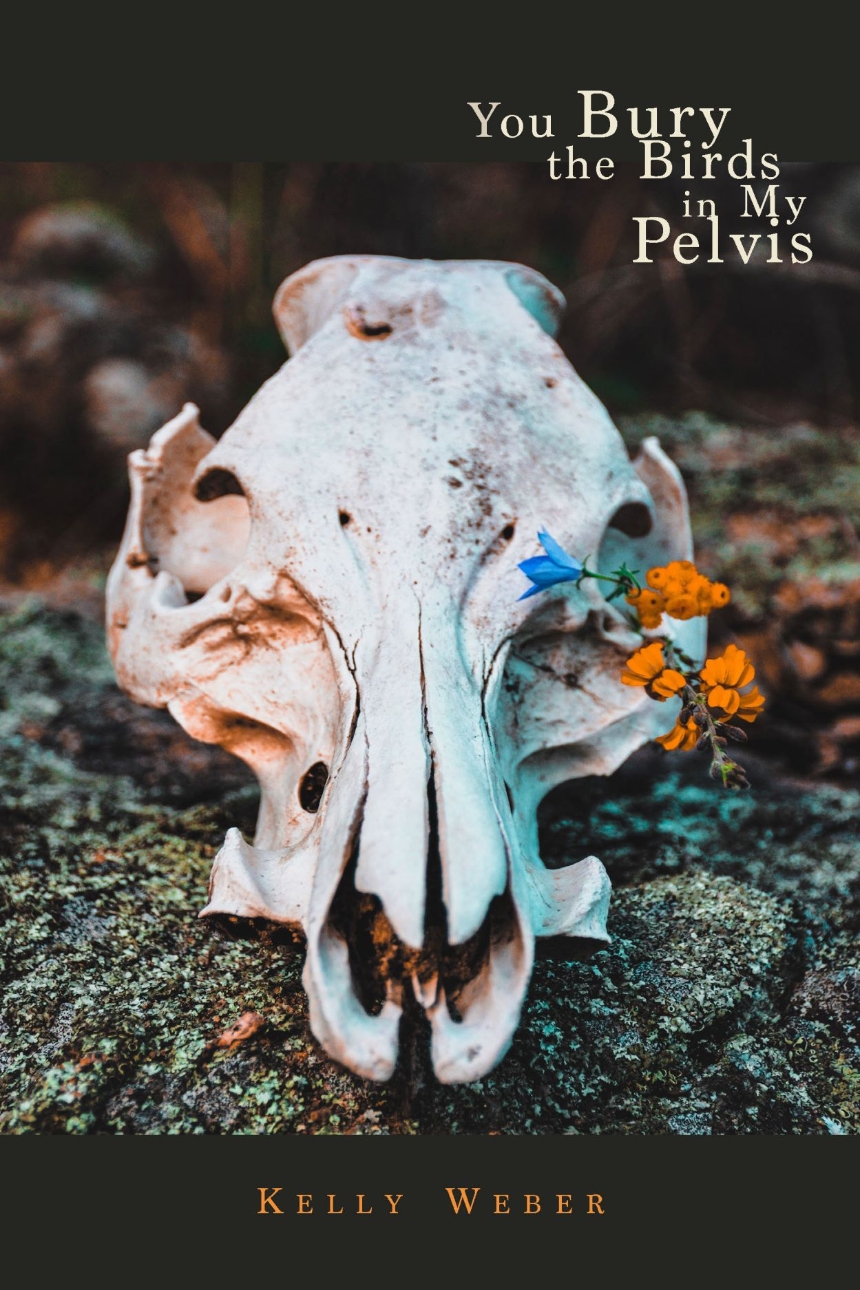Distributed for Omnidawn Publishing, Inc.
You Bury the Birds in My Pelvis
Poems in a range of forms that consider the queer body, chronic illness, and love amid rural plains landscapes.
Set against a rural plains landscape of gas stations, wind, and roadkill bones littering the highways, You Bury the Birds in My Pelvis is a love letter to the nonbinary body as a site of both queer platonic intimacy and chronic illness. Looking at art and friendship, Kelly Weber’s poems imagine alternatives to x-rays, pathologizing medical settings, and other forms of harm. Considering the meeting place of radiological light and sunlit meadows, the asexual speaker’s body, and fox skeletons, these poems imagine possible forms of love. With the body caught in medical crisis and ecological catastrophe, Weber questions how to create a poetry fashioned both despite and out of endings.
You Bury the Birds in My Pelvis explores forms with plainspoken prose poems with a mix of short poems and longer lyric sections that navigate insurance systems and complicated rural relationships to queerness.
You Bury the Birds in My Pelvis is the winner of the 2022 Omnidawn 1st/2nd Poetry Book Contest, chosen by Mary Jo Bang.
Set against a rural plains landscape of gas stations, wind, and roadkill bones littering the highways, You Bury the Birds in My Pelvis is a love letter to the nonbinary body as a site of both queer platonic intimacy and chronic illness. Looking at art and friendship, Kelly Weber’s poems imagine alternatives to x-rays, pathologizing medical settings, and other forms of harm. Considering the meeting place of radiological light and sunlit meadows, the asexual speaker’s body, and fox skeletons, these poems imagine possible forms of love. With the body caught in medical crisis and ecological catastrophe, Weber questions how to create a poetry fashioned both despite and out of endings.
You Bury the Birds in My Pelvis explores forms with plainspoken prose poems with a mix of short poems and longer lyric sections that navigate insurance systems and complicated rural relationships to queerness.
You Bury the Birds in My Pelvis is the winner of the 2022 Omnidawn 1st/2nd Poetry Book Contest, chosen by Mary Jo Bang.

